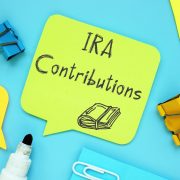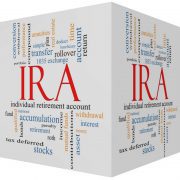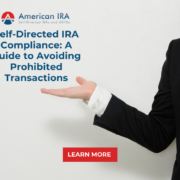What are Some Rules on Prohibited Individuals in Self-Directed IRAs?
When a lot of people first hear about how Self-Directed IRAs work, they get excited about the possibilities. They know that a Self-Directed IRA can be a chance to invest in a wide range of potential retirement investments, such as real estate, precious metals, tax liens, private companies, and LLCs, and more. But what they do not often consider before signing up is that there may be some restrictions to getting started, particularly when it comes to how they interact with specific individuals—or in this case, prohibited from interacting with, via an IRA.
What does that mean, exactly? Let us break down some of the most important rules within a Self-Directed IRA so you can better understand how it works.
Who Are “Disqualified Persons” for a Self-Directed IRA?
It starts through understanding who you can and cannot interact with when using the assets within an IRA. The IRA itself cannot interact with disqualified persons, which refers to people such as family members and business partners. Because interacting with these people would potentially offer you a personal benefit outside of the IRA, it would create a hazardous situation in which you are profiting in the short-term from something that should be outside of your usual assets. For that reason, these transactions—including renting out a real estate property within an IRA to someone you know—are prohibited.
As you can find out at our site on prohibited transactions, here are some examples of “prohibited” or “disqualified” individuals who cannot transact with your IRA:
- Spouse
- Descendants or ascendants (i.e., parents or children)
- The spouses of descendants or ascendants
- Entities controlled by any disqualified person, such as an LLC
Keep in mind that this is not the comprehensive list of disqualified persons or entities, but it will serve as a good introduction to the concept. The basic rule of thumb is to keep retirement assets completely separate from personal assets and benefits. By doing this, you embrace what retirement accounts are all about: using long-term growth to build a plan specifically for when you turn a certain age—not for your immediate benefit.
A transaction can be something as simple as renting a real estate property or making a loan from an IRA. While these can be valid with certain people, you should avoid these transactions with anyone you suspect might be a “disqualified person.”
Knowing More About the Rules of Self-Directed IRAs
It is not just the people you transact with that you should be thinking about if you want to keep within the rules. You should also make sure that the assets you invest in are valid retirement investment assets. And while the Self-Directed IRA does have a wide berth for investing in retirement assets, it does not mean you can use anything within a Self-Directed IRA and call it a retirement asset.
What are some examples? Life insurance, some precious metals, art, alcoholic beverages including fine wines, collectibles, and baseball cards are prime examples of something that might be a store of value but would not be considered a valid retirement investment. Because it is difficult to gauge the value of these items, it makes it difficult to track the value of a retirement portfolio, and these investments would not be considered valid.
To learn more about what the IRS would consider a prohibited transaction, you can visit the IRS website to discover a more comprehensive list of prohibited transactions, including the acronyms that will help you better get an idea of the retirement landscape.
Interested in learning more about Self-Directed IRAs? Contact American IRA, LLC at 866-7500-IRA (472) for a free consultation. Download our free guides or visit us online at www.AmericanIRA.com.









